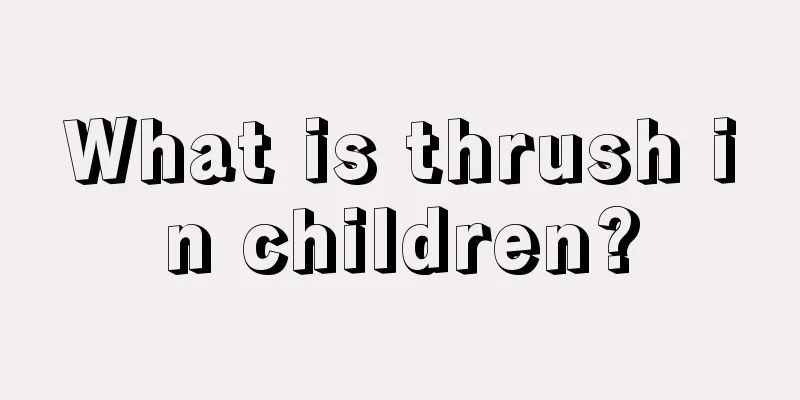What is congenital heart disease screening in infants?

|
Children need to undergo a physical examination when they are born, and congenital heart disease screening is one of them. Congenital heart disease makes children's immunity low, and once it becomes serious, it may cause many complications such as pneumonia. Therefore, mothers must pay attention to their own health when they are pregnant. What the mother does during pregnancy will greatly affect the physical and mental health of the child. So, what tests are needed for congenital heart disease screening? What are the symptoms? 1. Physical Examination If the physical examination reveals typical organic heart murmurs, dull heart sounds, enlarged heart, arrhythmias, and enlarged liver, further examination should be conducted to rule out congenital heart disease. 2. Special Inspection X-ray examination, ultrasound examination, electrocardiogram, cardiac catheterization, cardiovascular angiography, pigment dilution curve measurement, non-invasive multi-shot spiral CT Based on the above medical history, physical examination and positive signs obtained from special examinations, a comprehensive analysis and judgment are made to clarify the diagnosis of congenital heart disease. There are many types of congenital heart disease. Complex and severe malformations can cause serious symptoms shortly after birth and even be life-threatening. It should be noted that some simple malformations such as ventricular septal defect and patent ductus arteriosus may not have obvious symptoms in the early stages, but the disease may still potentially develop and worsen, and requires timely diagnosis and treatment. The main clinical symptoms are: 1. Frequent colds, repeated respiratory tract infections, and susceptibility to pneumonia. 2. Poor growth and development, weight loss, and excessive sweating. 3. The baby has weak sucking ability and difficulty in feeding, or refuses to eat, chokes and coughs, and usually has rapid breathing. 4. Children complain of fatigue and poor physical strength. 5. Lips and nails are blue or blue after crying or activities, and the fingers and toes are clubbed (the nail bed is raised like a hammer). 6. Likes squatting, fainting, and coughing up blood. 7. Auscultation revealed a heart murmur. It is unfortunate for a child to have to endure illness from birth. It is recommended to get married and have children at an appropriate age, change bad habits during pregnancy, such as smoking and drinking, and adjust one's mental state. Keep yourself in a positive and happy mood every day, try to play with your phone less, watch the computer less, and avoid radiation. This may reduce the chances of your child having congenital diseases. |
<<: What should you pay attention to when a five-year-old child is changing teeth?
>>: What to do if your child has flat feet
Recommend
Is it good for children to eat yam?
It is naturally very good for children to eat yam...
What are the tests for retinopathy of prematurity?
Retinopathy is relatively common in premature bab...
How long do newborn babies sleep?
After the child is born, parents will be concerne...
What to do if your child has blisters on his lips
Everyone knows that blisters on the lips are caus...
The impact of precocious puberty on children
The incidence of precocious puberty in children i...
What are the symptoms if your baby is teething?
What are the symptoms if your baby is teething? W...
How to treat children’s thick white tongue coating?
The problem of thick white tongue coating is very...
Why do babies eat?
If the baby vomits as soon as he eats, the situat...
What should I do if my child has swollen lymph nodes?
Lymph nodes are very important nodes in the circu...
What to do if a child has a fever and vomits
Clinically, it is very common for children to hav...
What is the reason for a child to have a fever and vomit?
In people's daily lives, some diseases will o...
Why do children want to vomit after eating?
For children, no matter what abnormal conditions ...
Children's morning cough
When young children cough when they wake up in th...
The reason why babies have diarrhea after hanging water
Some babies have diarrhea after receiving intrave...
What to do if your child has repeated fever
What should I do if my child has repeated fever? ...









